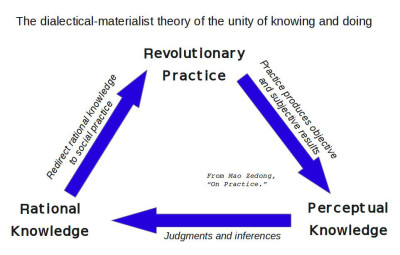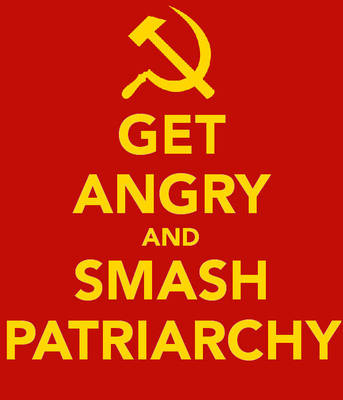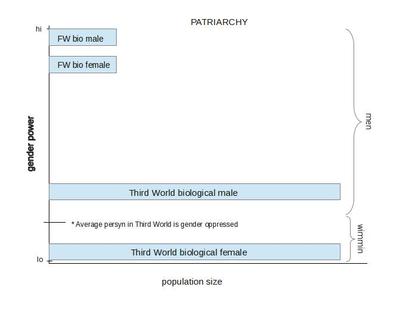
Class Consciousness Amongst the Imprisoned Lumpen
This essay was written for the book on the lumpen class that MIM(Prisons) has been working on for a few years. We took a break to focus on putting out Chican@ Power and the Struggle for Aztlán, and now that that book is published and distributed we are refocusing on our analysis of the lumpen class in the United $tates. We have already completed a draft of a chapter of the book, based on our economic research about the size and composition of the lumpen class. We are distributing this draft chapter as a pamphlet for feedback.
While analyzing economic statistics is a vital part of understanding the lumpen class, the next step is understanding how to influence the class, and hence the class consciousness.
We are publishing this essay in Under Lock & Key to spark discussion and ask for feedback. We want to know how you’ve seen individuals and groups develop lumpen class consciousness. We are especially interested in how lumpen organizations (parasitic or proletarian-minded) develop class consciousness amongst their membership. How does that class consciousness overlap, interact or even conflict with national consciousness? Please send your reports to Under Lock & Key so we can all learn and grow from your practice!
What is class consciousness?
Simply stated, consciousness is being aware and knowing what it is you are observing. When you eat you may be conscious of the chewing and swallowing. Many people eat without being aware of the act of eating – this is parallel to most people acting in a class’s interests without being conscious of doing so; they just do what is good for them at the time. Consciousness of chewing does not automatically come with eating, and neither does consciousness of class position automatically come with belonging to a particular class.
The Revolutionary Anti-Imperialist Movement (RAIM) defines class consciousness as “The understanding by members of particular classes that they represent a certain class, that their class interests may intersect or oppose those of other classes, and of their agency when collectively organized for class struggle. Typically, class consciousness is used to describe the most broad, clearest perspective of either the proletariat, the bourgeoisie or their sub-classes.”
Why do we study class consciousness among the lumpen?
We study class consciousness in an effort to shape the lumpen into an alliance with the international proletariat. Without class consciousness, the lumpen act in ways which strengthen the position of the bourgeoisie: by upholding bourgeois cultural propaganda (e.g. radio rap), participating in self-destruction of oppressed nations (e.g. by selling drugs or fomenting gang divisions), allying with Amerikkkans against the international proletariat for “patriotic” reasons, and the list goes on.
National oppression already leaves a persisting impression upon the consciousness of the lumpen of oppressed nations. All of the features of lumpen existence in the United $tates – police brutality, urban decay, limited job and education opportunities, mass incarceration, etc. – are features of national oppression. The elements of national oppression that lead the lumpen to the prison doors in the first place are then exaggerated once behind the razor wire. We would be in error to not appreciate that the lumpen has some intuitive grasp of their place in U.$. society. On some level people of the lumpen class realize they are disadvantaged.
Karl Marx said in 1847:
“Economic conditions had first transformed the mass of the people of the country into workers. The combination of capital has created for this mass a common situation, common interests. This mass is thus already a class as against capital, but not yet for itself. In the struggle, of which we have noted only a few phases, this mass becomes united, and constitutes itself as a class for itself. The interests it defends become class interests. But the struggle of class against class is a political struggle.”(1)
In order for a lasting development to be realized in the lumpen, we need to do as Marx said and become a class “for itself” rather than a class blindly working for the bourgeoisie. Our work presently is in studying the contradictions today in our neighborhoods and cellblocks, and employing dialectical materialism to create short-range programs in order to push the people in the prisons, barrios, hoods and reservations forward to reach our long-term goals. We need cadre organizations, liberation schools, youth brigades and our own press. We need to develop alternative forms of power which rely on the people’s independence outside of imperialism’s sphere of influence. Time has proven that imperialism and the basic exploitative character of capitalism cannot be reformed nor can it be made to serve the interests of the people. It can only continue to engender war, poverty and untold strife at the expense of those neatly tucked away in the periphery.
In search of a better way, and in rejection of the comforts of imperialism and its blood money, we must choose which side of the struggle we are truly on. At any particular time lumpen, like all people, are either acting in the interests of the international proletariat or in the interests of imperialism. Most lumpen have no apparent probability of status advancement, so allying with the international proletariat is in the lumpen’s class interests. But if socioeconomic factors were to change and the lumpen now see opportunity for status advancement, then being allied with the international proletariat becomes class suicide.
One socioeconomic factor to take into account is the national question, which is directly related to national oppression and not necessarily economic status. For instance, there are New Afrikan and Chican@ labor aristocrats whose economic interests are with imperialism. And white lumpen are generally allied with imperialism and the Amerikkkan nation, even though they are imprisoned or their communities are poisoned by mining refuse due to capitalism. Thus, one may be an oppressed New Afrikan labor aristocrat and while aligning with the international proletariat may be viewed in an economic sense as class suicide, in a social sense this alliance would actually improve the probability of status advancement overall and not necessarily be class suicide.
Lumpen unity and class consciousness in the U.$.
Speaking on the proletariat of his day, Marx pointed out that a common situation existed for the proletarians to unite under common interests. The same could be said about the Brown Berets and Black Panther Party during the 1960s and 70s. There existed a sharp level of oppression and police brutality within Chican@ communities, which inspired the Brown Berets to serve as protectors of their communities as well as reach out to those from other barrios, mainly lumpen, to join ranks with them by being productive forces for their people rather than common “gangsters.”
The Black Panther Party (BPP) did a remarkable job building and developing class consciousness among the masses of the New Afrikan nation. The BPP was able to tie much-needed community programs to the stark material reality of New Afrika. Not only were the Panthers feeding the youth through the Free Breakfast Program, they educated the masses on their class position through this altruistic act. In one stroke they were able to secure the trust and gratitude of the people and illustrate the failures of the semi-colonial relationship in which the New Afrikan nation is ensnared.
There are glimmers of class consciousness in prison at times, but these episodes ebb and flow due to the bourgeois mindset of much of the prison population. Being raised in a First World country, we are influenced by its culture although it is not our own. As Mao said in eir essay “On Practice,” “in class society everyone is a member of a particular class, and every kind of thinking, without exception, is stamped with a brand of class.” The assumption of inevitable imprisonment or death; the glorification of drug and pimp culture; hustling for individual gain while harming our kin; and nihilism are examples of lumpen culture under the influence of the bourgeoisie.
At times we may see prison uprisings, strikes, or other prison organizing across national lines, but these events don’t usually remain intact for very long. This is because class consciousness does not develop spontaneously, rather it must be cultivated and spread through education and agitation. Only through the help of an educated cadre – both inside and outside prison walls – can class consciousness develop.
Present-day examples of class consciousness development in prison
In the Communist Manifesto, Marx and Engels said of class struggle for the workers, “The real fruit of their battles lies, not in the immediate result, but in the ever-expanding union of the workers.”(2) Marx and Engels understood that class struggle would continue so long as classes exist. They saw the union of the proletariat as the prize, not what concessions were gained from the ruling class per se.
Something similar was experienced with the California prison hunger/work strikes in recent years. The words of Marx and Engels were seen manifested, not in a “union of the workers” but in a union of the imprisoned lumpen. This union of lumpen produced the Agreement to End Hostilities. The real victory is in getting lumpen to see and experience that it is really us versus the pigs, and that a concrete force exists which oppresses ALL lumpen prisoners in some way. These are acts which cultivate an environment where class consciousness can grow; it creates a fertile ground for this process.
Within the environment of prison, lumpen organizations (LOs) are by far more structured and disciplined than they are on the streets. Despite the negative activity and values of parasitic LOs, there is reason to believe that they can operate to achieve revolutionary ends. Pick up any Under Lock & Key newsletter and one will find evidence of LOs working in prison to contribute to the anti-imperialist movement. So it isn’t a far-fetched idea to use LOs as revolutionary vehicles in building consciousness among imprisoned lumpen.
Lumpen organizations already bring out a form of consciousness within their membership, meaning they instill pride within their own people. LOs in prison are often organized by “ethnicity,” and in that sense they develop their national pride, identity and culture. Their consciousness as a subgroup is raised. This is not class consciousness, and most times not even national consciousness, but it’s a start, and more it’s a platform which can be used and highlighted. Most LOs already have an ideological indoctrination process in place for new recruits; adding class consciousness to this structured education shouldn’t be much of a stretch.
Class consciousness will only develop so much within a LO just like a crocodile will only grow so much when confined to a small fish tank. If the LO is engaged in anti-people activities, it is prevented from advancing politically. The parasitic nature of a profit-driven LO will never allow true unbridled class consciousness to develop because to do so would change the fundamental purpose of that LO. This is why Growth is one of the 5 principles of the United Front for Peace in Prisons. Comrades must not be discouraged from growing from a parasitic lumpen actor to a class-conscious revolutionary lumpen actor.
Lumpen organizations and other subgroups can come together to become a whole and thus unite as a class, as did the proletariat in Marx and Engels’s day, as did the Russian proletariat unite with the peasantry (uniting two classes) and how Mao Zedong united the peasantry in China upon common interests with the proletariat. When conditions in prison reach an intolerable level of suppression that affects all prisoners as a whole, we will begin to see each other as sharing the same interests of ending oppression behind the walls. Unfortunately this will not automatically make all prisoners come together in unity. Prison conditions alone aren’t a sufficient factor to promote class consciousness amongst imprisoned lumpen.
Practical experience shows that the more repressive the situation people find themselves in, the more likely they are to challenge the situation and find ways to combat it. In some facilities, a wide range of reading material is permitted to be possessed by prisoners, and the pigs aren’t readily looking for politically conscious leaders to repress and harass. At first glance it seems the freedom of movement and association would be a good environment to run political study groups and organize with each other. However, the flip side of having little repression is that many choose to spend more time chasing and idolizing bourgeois lifestyles; instead of picking up some political lit to read, they choose to discuss Nikki Minaj’s ass on the VMAs.
How to organize
Class-conscious lumpen must lead
The job of class conscious prisoners is to not just understand that change and development is good and inevitable, but we need to find ways to translate this understanding to the broader lumpen masses, and as quickly and efficiently as possible. It is on the lumpen to look beyond the interests of our own to achieve a higher level of political consciousness, and it is on politically conscious prisoners to point out the cause of our problems as well as what’s stopping all from uniting.
Organize around local experiences/conditions
There is not a one-size-fits-all solution to awakening the imprisoned lumpen class. There are many different types of individuals and different backgrounds/histories and beliefs. And we organizers all have different strengths and operate in varying conditions. But in general, open lines of communication, dialogue, re-education, and finding common-ground causes to fight for helps the process.
What should be stressed as a development to higher consciousness is the injustices experienced in common. With this sense of having a common injustice done against us, we will be more susceptible to change. If there isn’t a lot of immediate suffering to organize around, we can call on our common experiences prior to imprisonment. Even in relatively comfortable prison conditions, we can start by exploring how we came to imprisonment in the first place. The poor quality of teachers in our schools and mis-education given to us by the imperialists is by design.
We can then use these direct experiences to organize with others on practical projects – campaigns to improve our collective conditions of confinement, collective legal actions, appeals, literacy, etc. – and work to add to the preconditions of class consciousness in prisons. Attempts to integrate politics with a prison struggle will bring a higher level of class consciousness only if we can explain to others how it’s not just an isolated struggle within prison we’re all confronted with, but the infrastructure behind the prison industry itself, its society, the socio-economic relations, its effects on our interpersynal relationships and culture, and the world. When imprisoned lumpen begin to unite for common interests, then politically conscious prisoners should advocate for continued struggle. Once any concessions are granted, many tend to think “well, that’s all we’re going to get”, or they see a tiny concession as a huge victory, and step back from organizing. This is a sign of a lack of class consciousness, and a lack of internationalism, that must be addressed by the prison movement leaders head on.
Build study groups
We can lead study groups on deeper topics, or open debates on anything as simple as a news report. Although this may be harder in isolation, it is usually still possible to share material with others in your pod or initiate discussions on the tier. Sharing your views and hearing others’ can bring many together if a common objective is trying to be reached. It helps to build public opinion in opposition to the bourgeois media outlets. When there are one or two lumpen within every group agitating in this way, along with strong communication in other circles, sharing reading material and legal work, it all works to push their studying into actual work, and go from being spectators to actors in the process of transforming these dungeons and the imperialist system generally.
There are many topics to study to give a thorough understanding of our class position, including the works of Marx, Mao, Lenin, Engels and other communist revolutionaries before us. Political economy unlocks the mysteries of the origins and results of class struggle. The bourgeoisie (the owners of the means of production) and the proletariat (those who had nothing so must sell labor power) make up the principal contradiction in the realm of political economy. Understanding these classes, and all their sub-classes, requires one to perform a class analysis so that one understands where people stand on the economic totem pole, and determine where the social forces stand. Part of class consciousness is understanding who’s on our side and who’s trying to imprison, kill, and dismantle us.
If we were to utilize the tables out on the yards for educational-neutral grounds instead of real estate or casinos, a lot more will be susceptible to change their patterns. One table could be strictly legal work (grievances, lawsuits, etc.); one for help with reading, college and GED; one for addressing the daily issues so that nothing arises to blindside folks; one for political education, etc. These tables would be neutral ground for all nations, LOs, etc. to gain knowledge and put it to use. They would function simultaneously as Serve the People programs and political education meetings, building unity and transforming the lumpen into a class “for itself.”












